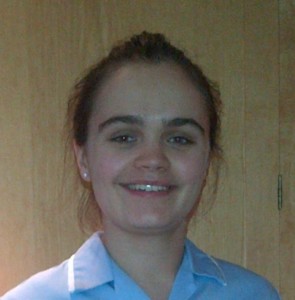 My name is Rachel and at seven years old I was diagnosed with the primary immunodeficiency (PID) known as hypogammaglobulinemia. My treatment is weekly immunoglobulin (IG) infusions.
My name is Rachel and at seven years old I was diagnosed with the primary immunodeficiency (PID) known as hypogammaglobulinemia. My treatment is weekly immunoglobulin (IG) infusions.
I studied Occupational Therapy at the University of East Anglia (UEA), graduating in 2018, when I was 24. The UEA's high ratings for student satisfaction were part of the reason I chose to study there. The university was very supportive of my condition. They arranged for me to live on campus, in a room that had ensuite facilities, and allowed me to bring a fridge from home, so that I could store my IG medicine. Having a fridge helped with my social life as it also served as a mini bar, from where people would grab drinks before going out for the evening!
My decision to be open about my condition
I found it really helped to be open about my PID with both staff and students, especially those in my student flat. I had informed the Health Sciences department and Student Support Services in advance about my needs, and I was allocated a course tutor and mentor, who I could call on for any help with learning and other needs.
There was a social group for students with chronic medical conditions which I attended for peer support. Then, I ended up making a close friend on my course who had various medical conditions and that meant that we understood each other's challenges and bonded over them. We are still very close, 11 years on.
The first year of university was extremely busy, with many new things to take on board, and it was important not to lose track of doing my weekly IG infusions. My solution was to allocate a specific time for the infusions. For me, it was Sunday afternoon.
Making adjustments
Occupational Therapy is a vocational course with professional placements, some of which are five days a week. I found that five days back-to-back was too much for me, so I was able to arrange to do two days on, one day off, and then two days on. This schedule gave me the rest I needed. While this meant my placements took longer to finish, and so I had slightly shorter holidays, it meant I had the help I needed to complete them.
Dealing with challenges
My biggest challenge came in the first term of my second year, when I was on placement in a hospital. I was put on an infectious diseases ward, which shouldn't have been the case, given my PID. Concerned that I would fail, I didn't query the placement. But, looking back, I should have asked for support from UEA, who would have advocated for me to be moved to a different ward.
Following this, I fell extremely ill with a virus that left me in hospital for many weeks. I missed so much of my university course that I had to drop out until the following academic year and restart my second year with a different cohort of students.
The university gave me superb support, keeping in touch throughout my time out and setting up meetings with the course lead and my supervisor before I came back. They also put me in touch with some of the new students that I would be studying with, so that I had the opportunity to meet with them before term started.
My top tips
- I think it is so important to make sure that, as a student with an immunodeficiency, you choose a university that will support and enable you to get the most out of your degree and your time as a student. It is very useful to look at the league tables for student wellbeing and pastoral support, and to read student reviews.
- If you're struggling, don't be afraid to ask for help.
Posted September 2025





